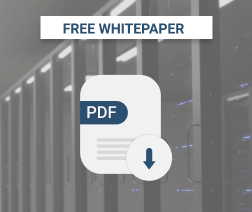There’s one thing that’s always true in life and in business: expect the unexpected. Sometimes, these unexpected moments can be bumps in the road, and other times they can be life-altering or catastrophic changes that require significant capital, expertise or other resources to navigate.
For this reason, many companies consider business insurance to mitigate the risks of such unexpected events. This is especially true for managed services providers (MSPs), who have responsibilities that extend beyond their own teams, technology, facilities and customers. As cyberattacks continue to rise, MSPs often take on additional responsibilities for mitigating the risk of cyberattacks to both their own businesses and their customers. Each one of these areas introduces new potential vectors of occurrences that can go wrong and potentially put their business at risk.
Most MSPs likely have some foundational insurance already that covers general liability, similar to any type of business. These are basic types of insurance that any business probably has — MSP or not. But they may also want to consider a few areas of potentially elevated coverage, based on the nature of their specific work and their overall tolerance for assuming risk.
There are many types of business insurance that an MSP can consider if they are evaluating potential solutions that might be right for their individual circumstances. Core coverage and general liability insurances, for instance, provide broad protection for MSPs across fundamental business risks that any company can face, such as personal or property damage. They may also want to consider other types of employee or human liability instances, such as workers’ compensation insurance to cover work-related injuries, or employment practices liability to cover employment allegations, or extended property insurance to cover damage resulting from a fire, burglary, or other unexpected event.
Further reading Why Cyber Insurance Is Crucial for MSP Clients: An Unavoidable Necessity
There are also areas that an MSP may want to consider in connection with their specific work area around technology services. For instance, cyber-liability insurance can protect them from lawsuits, recovery efforts, and other effects of a cyberattack. This type of insurance is especially important to consider as cyberattacks continue to rise, especially those targeted at MSPs (up 70% from 2020 to 2021).
Further reading Why Are Cybercriminals Targeting MSPs?
Similarly, insurance types, such as tech errors and omissions, can cover lawsuits or other negative effects from substandard work, oversights, budget overruns, and other events relating to service or technology delivery.
It’s up to each MSP to decide the types and levels of coverage that they feel are relevant for their specific circumstances and customer base. Each protects against a significant negative consequence for the business, and if there is the potential for one of these incidents to occur, it’s worth MSP business owners’ while giving consideration to whether these types of insurance are relevant.
The cost of each of these different types of business insurance varies greatly depending on a number of factors, which can include company size, revenue, the risks being insured against, and company practices, such as do they play it fast and loose on safety strategies or do they have strict policies in place? Cost can vary based on the value of the insured item or whether the company has a history of previous claims.
The decision to move forward with business insurance is personal for each MSP, but it’s a conversation that should be regularly revisited as part of their overall business growth strategy and disaster response strategies. In doing this, an MSP can ensure that they are best prepared for any potential bump that they may encounter, in order to respond in the best interests of their own business and employees, as well as those of their customers.







